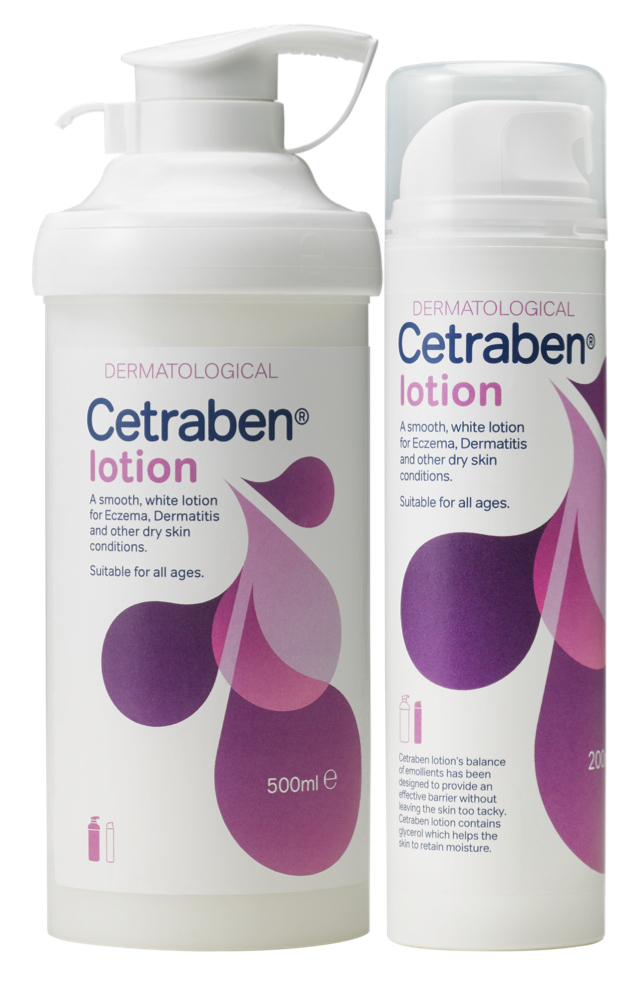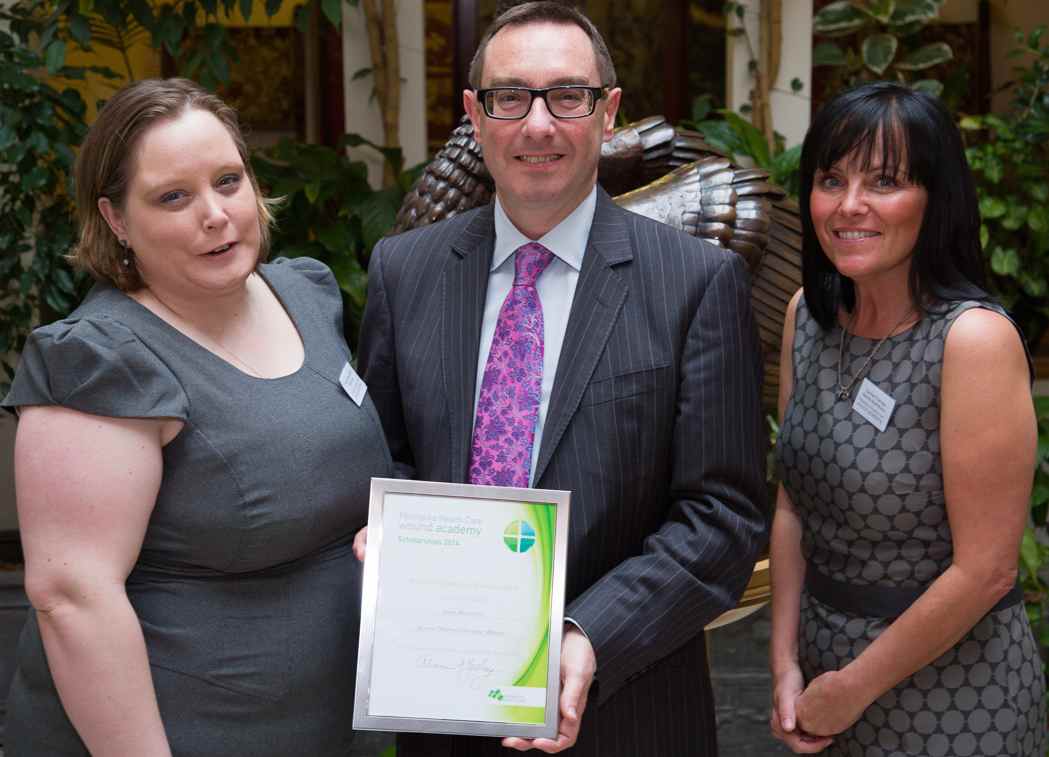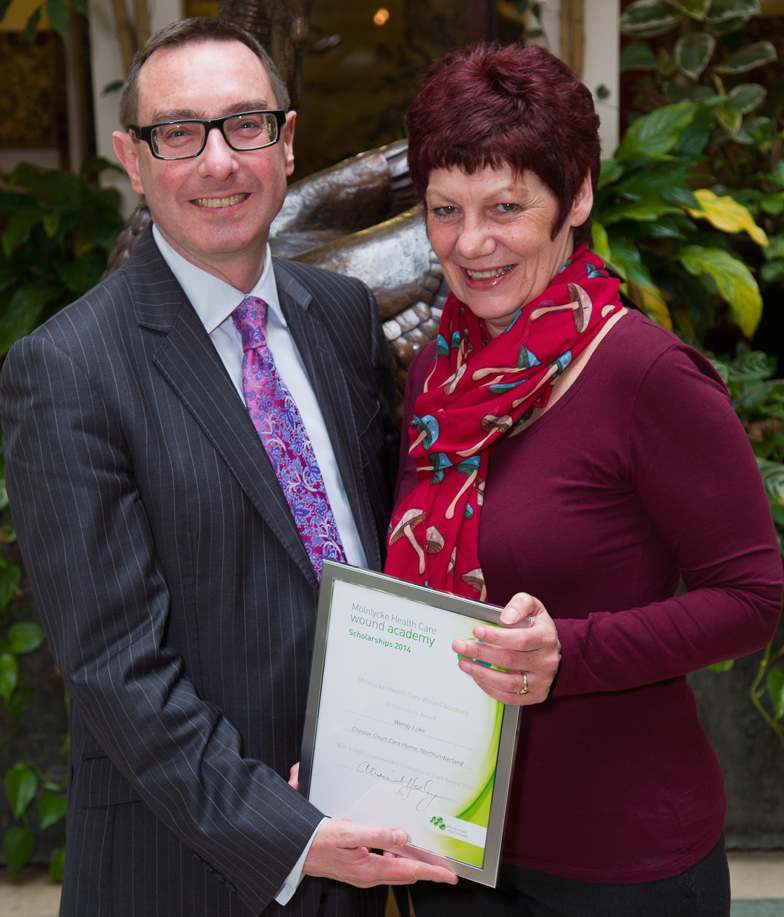


I have to admit that I am not always backward in coming forward with an opinion if it is an issue about which I feel passionately. Indeed, I sometimes wonder if I am an exclamation mark short of being a member of the green ink brigade!

We are giving away two Archos 70 Xenon 7" mobile tablet devices to the 500th and 700th nurse who registers on the Primary Care Nursing Review website!

On May 15th I had the honour of attending the Mall Galleries, London where Changing Faces, aided by the broadcaster and journalist, Mishal Husain, were launching their new campaign, ‘What Success Looks Like’.
Press 'read' to learn more
New research has found that the riding position of motorcyclists is a contributory factor in lower limb venous disease and the development of venous ulceration. However, according to a survey, 60 per cent of motorcyclists would not consider wearing compression hosiery which can prevent lower leg problems, despite two-in-five complaining of cramps and leg pains after riding.
A new report released today, supported by Allergy UK in partnership with MEDA Pharma, warns that the ineffective management of ‘serious’ hay fever, as defined by moderate-to-severe symptoms, is causing thousands of avoidable asthma-related emergency hospital admissions every year.
The next generation of bandages may be able to tell you when a wound needs attention and in some cases, actually start the process.
Coloplast and the University of Ulster have developed and launched a new on-line resource to help specialist nurses communicate their work to others for the benefit of patients.
It's RCN Congress time again! This year, Congress will take place from the 15th - 19th June at the Liverpool Arena and Conference Centre.

Thornton & Ross announce their latest addition to the Cetraben® Emollient Range, Cetraben® lotion. Formulated for the treatment of eczema and dry skin, Cetraben® lotion supports Complete Emollient Therapy.

Helen Mountford who is a staff nurse at the Acorns hospice in Walsall has been named as the overall winner of this year’s Wound Academy Scholarships and Awards.
Urinary catheterisation is as old as the hills, affects thousands of people a year and costs millions of pounds. And yet patients continue to suffer catheter associated urinary infections (CAUTI), or experience discomfort during the procedure or while the catheter is in situ. Add to this the fact that primary care workloads never get lighter, and it would seem obvious that this most basic of all procedures should be simple. So, refreshing one’s knowledge base can only help.
Lymphoedema is frequently misunderstood and thus mismanaged. This article, taken from the document ‘Best Practice For the Management of Lymphoedema – 2nd Edition: Surgical Intervention – A position document on surgery for lymphoedema’, outlines the causes of this disease, its classification and progression and the signs to be aware of.
The cornerstones of lymphoedema management as outlined in the literature include:
Compression bandaging plays a central role in the management of all forms of chronic oedema and lymphoedema.

Patients receiving end-of-life care are susceptible to pressure ulcers and other wounds. However, all too often, these are viewed as untreatable as it is unlikely that they will heal. In this article, Helen Mountford, the 2014 Mölnlycke Wound Academy Scholarship winner, outlines why wound care is important in paediatric end-of-life care, her work in this area to date, and what she hopes to achieve as a result of winning the Scholarship.
A substantial increase in the number of residential home patients referred to the Integrated Community Team (ICT) for pressure ulcer management highlighted the need for ongoing improvements in care standards with these homes. In response, a project was defined with the specific aim of enhancing the standard of care within RHs. This article, adapted from a poster presented at the European Wound Management conference 2014, outlines a collaborative initiative between the Tissue Viability Service, Basildon ICT, and Smith & Nephew.

In this case-study, the highly commended entry in the Molnlycke Wound Cademy Scholarship and Awards, Wendy Luke outlines the care of a patient with Chronic Obstructive Pulmonary Disease. It shows how Wendy and the team had worked together to find a suitable dressing that would both maintain the seal on her ventilation mask, and allow treatment to be applied to the small pressure ulcer on her face.
Mepitel One as a primary dressing was used as it could be removed without pain or trauma. The wound healed, and the patient continue to use the dressing prophylactically.

Continence (or rather, incontinence) was a taboo subject for many years; it became the 'butt-end' of many comedians’ jokes, living in the same realm as sexual innuendo. In this opinion piece, Frank Booth, a retired usrology nurse specialist, reflects that despiteattitudes towards this subject relaxing somewhat, community nurses still have to help and support patients living with incontinence.

Sue Smith reflects on the patients that made a lasting impression upon her during as a first year student nurse on her first stint of night duty
Picture the scene; you’ve been asked to do a presentation at a forthcoming study day. This means that someone thinks the work you are doing deserves a wider audience – yeah! But then you think, ‘If I’m standing on the stage doing the presentation, it’s assumed that I’m the one who knows more, or at least as much, as those sitting in the audience.
While the rain in Birmingham managed to dampen most things, it failed to dampen the enthusiasm of the delegates, speakers and exhibitors at the annual Association for Continence Advice (ACA) conference, held at the Hilton Birmingham Metropole hotel.
The new health and care system will deliver the ambitions set out in the Health and Social Care Act. NHS England, Public Health England, the NHS Trust Development Authority and Health Education England will take on their full range of responsibilities.
The NMC is currently revising the Code, and is seeking the views of patients, the public, nurses, midwives and other organisations or individuals who may be affected by changes to the Code.

Following on from our interview with Crystal Oldman, Chief executive of the Queen’s Nursing Institute (QNI), Sharel Cole, a Queen’s Nurse (QN) gives us some insight into why she applied to be a QN and what she feels this has helped her achieve.
Community nursing charity The Queen’s Nursing Institute has announced the start of a new three-year project to improve the health of people who are homeless.
In this update, we bring you news of the comings and goings of RCN NI members and RCN NI activity.
Coloplast and the University of Ulster have developed and launched a new on-line resource to help specialist nurses communicate their work to others for the benefit of patients. Specialist nurses have a wide and deep knowledge of their specialty, but have not necessarily developed the knowledge and skills to manage the demands of being a specialist nurse.
A study published in the Radiotherapy & Oncology Journal has shown that the use of Mepitel Film® dressings prevents the development of moist desquamation: painful skin ulcerations associated with breast cancer radiation therapy. The study also found that the same dressing reduced the overall severity of skin reactions such as itching and irritation by 92%.

If you have any comments, opinions or would like to submit an article on any of the topics, Email, Tweet us or leave a comment on Facebook. We would love to hear from you.
15th -19th June 2014
Arena and Convention Centre, Liverpool
30th June – 2nd July 2014
Crowne Plaza Hotel, Glasgow
29th September
The Royal Garden Hotel, 2-24 Kensington High Street, London
Tap your answer and view the results from other readers instantly.
Tap your answer and view the results from other readers instantly.
Dermatology & wound care clinical trials. If you are interested in becoming involved in this type of research we would like to make contact with you.
Mölnlycke Health Care is committed to supporting practitioners’ professional development through both formal and informal methods. One of the main tenets of this delivery framework is the Wound Academy, which supports the Scholarship and Awards programme.
The Scholarship and Awards Programme (SAAP) has been running for 12 years. During this time, the programme has supported and enabled wound care teams, experienced practitioners and novice practitoners to realise projects within their organisation, and facilitated professional development through the support framework provided in the year following the Scholarship.
No, we’re not being sexist! Just that even today most nurses are female, so it’s easier than writing he/she, him/her etc…